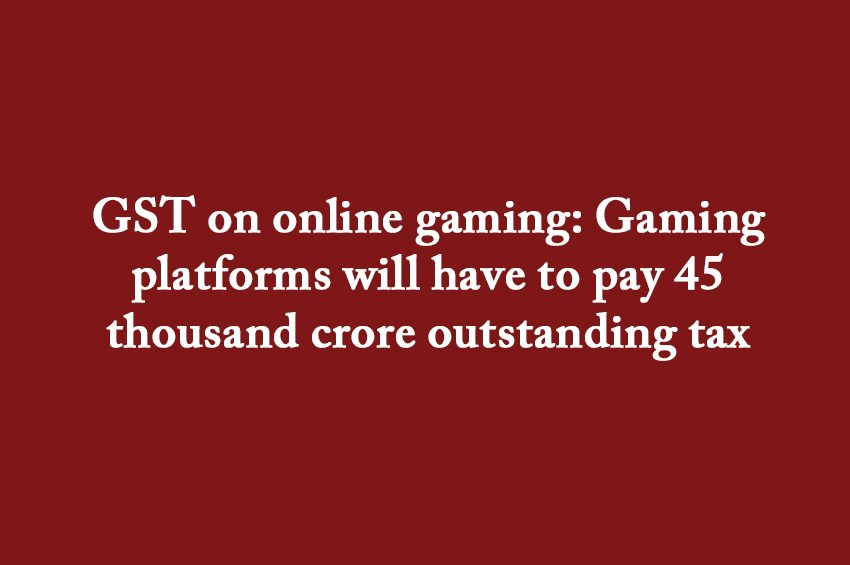Winning Bizness Desk
Mumbai. After a lot of deliberations, the central government has finally brought online gaming under the 28% tax net and now the recovery of outstanding tax as per GST from online gaming platforms has to start. According to officials of the Central Board of Indirect Taxes and Customs, since the implementation of GST on July 1, 2017, these companies have paid less than Rs 5,000 crore in tax. The actual liability of total tax on these is more than 50 thousand crore rupees. In this context, tax of Rs 45,000 crore will be collected from these companies. According to the officials of the Indirect Tax Department, after the latest tax announcement, the situation regarding GST liability on online gaming platforms has become clearer. They will have to pay GST at the rate of 28%. The arrears of tax paid earlier at the rate of 18% will also have to be paid.
GST Council took decision on July 11
Notably, on July 11 this year, the GST Council had decided that GST would be levied at the rate of 28% on the full face value of bets placed on gaming, whether skill-based or chance-based. The Directorate General of GST Intelligence (DGGI) may soon issue notices to online gaming platforms. These include such foreign gaming companies, which have evaded tax of more than 12 thousand crores. A demand of 21 thousand crores has already been sent to Gameskart. Some online gaming companies are converting the earnings in India into cryptocurrency and sending them abroad through a network of shell companies. DGGI in Mumbai has detected one such network. This network had sent funds of more than Rs 700 crore earned from Indian users of gaming apps by converting them into cryptocurrency.
Gaming companies based in tax haven countries
Most of such gaming companies are headquartered in tax haven countries. They are working illegally in India and adopt various tactics to avoid legal action. These companies have opened accounts in the name of drivers, street vendors or other small shopkeepers or laborers by making them dummy directors of their shell companies. Money was sent abroad by buying cryptocurrency through them. According to officials, hawala payments were also being made through them.


